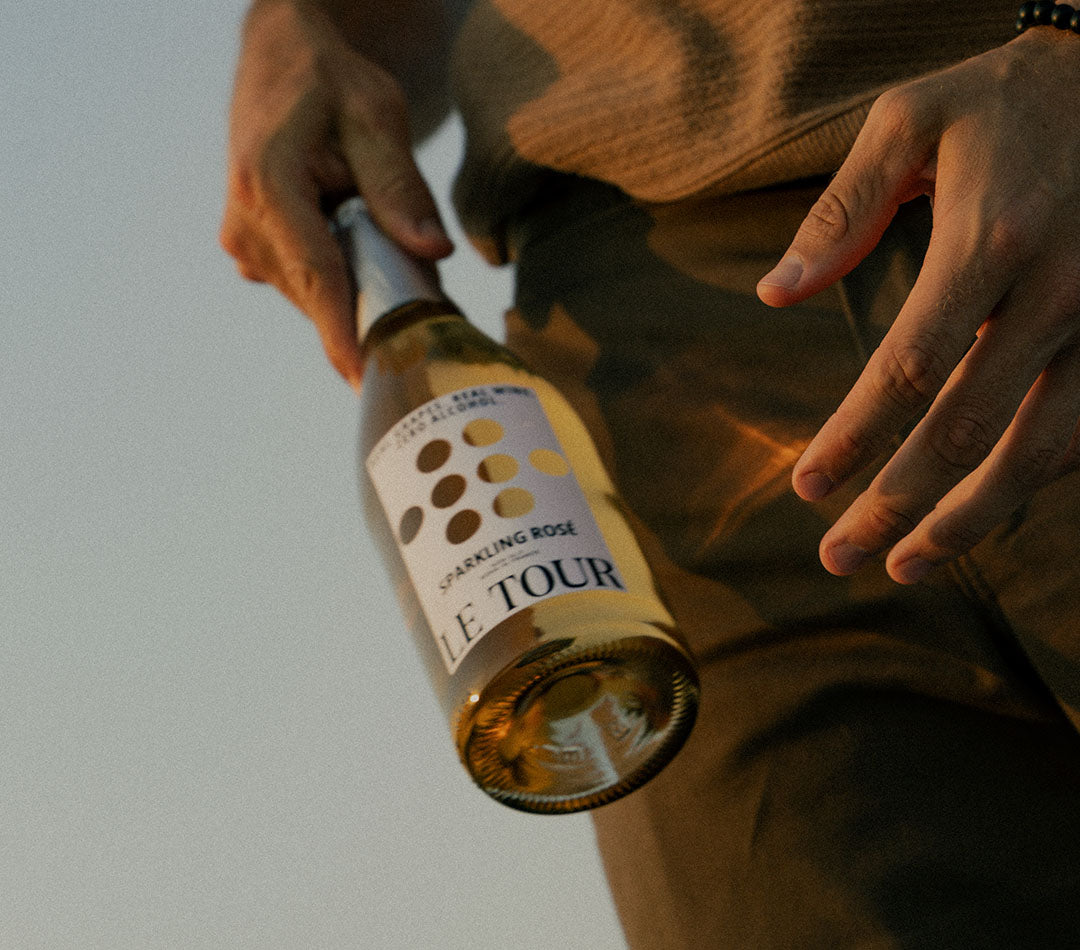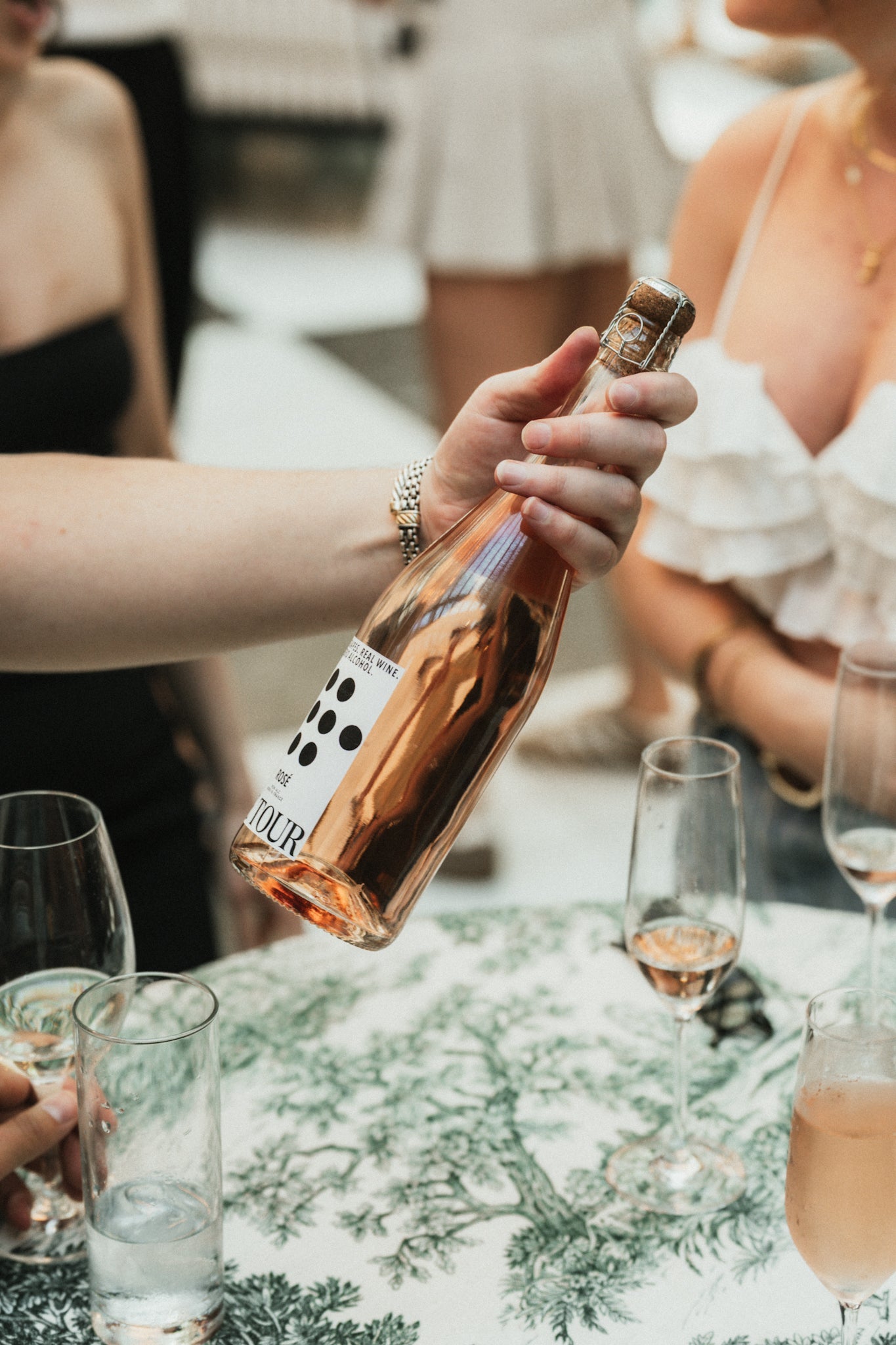Imagine savoring a glass of exquisite wine without experiencing the buzz of alcohol. Non-alcoholic wine is redefining traditional perceptions, presenting a sophisticated alternative for those who desire the remarkable flavors without the intoxicating effects. This rapidly growing trend commands global attention, prompting a profound reassessment of what it truly means to appreciate wine.
In recent years, the wine industry has evolved considerably, implementing innovative techniques to allow the appreciation of wine without its alcohol content. Through methods such as dealcoholization and meticulous grape selection, winemakers have refined their craft, maintaining flavors and quality on par with their alcoholic counterparts. Gaining insight into these intricate processes provides a deeper understanding of the art of crafting non-alcoholic wine—a genuine labor of dedication.
Welcome to the future of wine—sophisticated, delightful, and free from alcohol.
The Rise of Non-Alcoholic Wine
Non-alcoholic wines have become a part of the wellness trend, offering a lower-calorie alternative to traditional wines. They appeal to health-conscious consumers by providing about half or less of the calories of regular wine, using innovative production methods that avoid artificial flavors or colors. As a premium, low or no-alcohol option, these wines cater to modern lifestyles without sacrificing quality.
What is the Difference Between Dealcoholized & Non-Alcoholic Wine?
Non-alcoholic and dealcoholized wines may sound similar, but knowing their differences helps appreciate them. Both start as fermented wines and use processes like membrane filtration or reverse osmosis to remove alcohol while keeping original flavors and aromas. Unlike grape juice, they contain plant compounds and antioxidants, which can benefit gut health. They offer a social and sensory wine experience minus alcohol's negative effects. Quality fruit is crucial, as removing alcohol demands careful flavor review to preserve authentic taste.
Historical Context
Wine, traditionally linked to alcohol, is now shifting with the rise of non-alcoholic options. This challenges the idea that alcohol is essential to wine, creating inclusive choices for vegan and gluten-free lifestyles. The growth of low- and non-alcoholic wines demonstrates the industry's adaptation to modern tastes and wellness trends.
Sparkling wines are especially promising, offering a satisfying mouthfeel that is alcohol-free. This shift underscores how the industry balances tradition with innovation to meet evolving consumer preferences and usher in a new era of enjoyment.
The Non-Alcoholic Wine Process
Creating non-alcoholic wine begins with traditional winemaking, using skilled vintners to cultivate high-quality vineyards. After fermentation, alcohol is gently removed, shifting from conventional methods. Non-alcoholic wines are revolutionizing the industry, allowing enthusiasts to enjoy wine with similar complexity but fewer calories, appealing to healthier choices.
Key Methods Used
Winemakers use advanced techniques like vacuum distillation, spinning cone technology, and reverse osmosis to produce non-alcoholic wines that retain their original character and flavor. Inline carbonation can add a sparkling touch, allowing enthusiasts to enjoy a traditional, alcohol-free wine experience.
Retaining Flavor and Quality
Producing non-alcoholic wines is challenging because it requires preserving the rich flavors of premium wines while removing alcohol. Starting with real wine from grape varieties like those in Ribera Del Duero or Domaine de la Madone provides a quality base. Techniques such as vacuum distillation, spinning cone, and reverse osmosis help maintain flavor, depth, and complexity. Paying attention to varietals, region, and vintage keeps the wine's nuances. Non-alcoholic wines also retain beneficial compounds and antioxidants that support gut health. Many producers follow sustainable practices by sourcing from eco-friendly, family-owned vineyards, ensuring quality and authenticity.
Benefits of Non-Alcoholic Wine
Non-alcoholic wines, also known as zero-proof wines, offer a transformed wine experience that retains the allure of traditional wines without the alcohol content. This evolution caters to wine lovers who wish to enjoy the art of wine without the adverse effects associated with alcohol consumption, such as hangovers or impaired judgment.
Additionally, these alternatives are lower in calories, making them a healthier choice. Another aspect to consider is the handling and storage of these wines, which require more care since they lack the natural preservatives typically present in alcoholic versions. Nonetheless, these wines capture the essence of real wine reimagined, maintaining the celebratory nature and shared social experiences that come with enjoying a glass of wine.
Health Advantages
Opting for non-alcoholic wine brings numerous health benefits.
Firstly, these beverages are lower in calories, generally containing about 30 calories per serving, compared to traditional wines, which can contain up to 125 calories per serving. This aligns with weight management and wellness goals for individuals seeking to moderate their caloric intake without compromising the wine experience.
Furthermore, the absence of alcohol means non-alcoholic wines do not disrupt the REM sleep cycle, potentially leading to better quality sleep and more refreshed mornings.
In addition to sleep benefits, non-alcoholic wines can support gut health. By avoiding alcohol-related irritation of the gut lining, the body maintains a balanced microbiome, which is essential for overall well-being.
Individuals also benefit from maintaining mental clarity and sharpness, as these wines do not compromise cognitive function. Thus, choosing non-alcoholic wine is a smart choice for those focused on health and balance.
Social and Lifestyle Benefits
Non-alcoholic wines also cater to the social and lifestyle needs of today's consumers. With modern health considerations in mind, these wines are often vegan, gluten-free, and naturally made, boasting lower calorie and sugar content per serving. This mindful approach aligns well with those practicing proactive dietary habits, making it easier for individuals to partake in social gatherings without deviating from their health-conscious paths.
Another advantage is the quicker consumption encouraged by the absence of alcohol, which helps maintain quality and freshness. Wine enthusiasts can savor authentic flavors without the alcohol, seamlessly integrating these non-alcoholic beverages into events and celebrations.
Consequently, non-alcoholic wines provide an excellent alternative for social settings, offering all the pleasure of sipping on a fine wine with none of the drawbacks associated with alcohol consumption.
The Role of Grape Selection
Crafting non-alcoholic wine begins with the thoughtful selection of specific vineyard blocks. Unlike traditional wines, non-alcoholic wine producers select grapes based on their ability to maintain authentic flavors without the presence of alcohol. This careful selection is crucial in reimagining what modern, alcohol-free wine can represent.
Here's how grape selection impacts non-alcoholic wine:
-
Flavor Variety: A diverse range of grape varieties, including Cabernet Sauvignon, Chardonnay, and others, is selected to create a flavor profile that mirrors traditional wines.
-
Natural Sweetness: Certain grapes bring out natural sweetness, which compensates for the lack of alcohol's mellowing effect.
-
Acidity and Tannins: Grapes with balanced acidity and tannins maintain the wine's structure even when alcohol is removed.
Reimagining the Wine Experience
Non-alcoholic wines are transforming wine enjoyment by offering elevated flavors and authentic experiences without alcohol. They cater to modern consumers seeking wellness and mindful drinking, eliminating hangover concerns and enabling responsible indulgence. This shift signifies an innovative move towards authenticity in the industry, appealing to those who want the pleasure of wine without its downsides.
Pairing and Enjoyment
Non-alcoholic wines enhance celebrations with a sophisticated experience, capturing traditional flavors without alcohol's drawbacks. Despite challenges in maintaining the body after de-alcoholization, producers focus on flavor and terroir. They often meet modern dietary needs, being vegan, gluten-free, low-calorie, and minimally sweet, allowing wine lovers to indulge without risking wellness goals. These wines blend tradition with modernity, offering a satisfying experience.
Events and Occasions
Non-alcoholic wines, such as Le Tour, are transforming celebrations by offering flavorful, healthy options that eliminate the usual drawbacks of alcohol. They fit into events, are vegan, gluten-free, and natural, supporting a modern lifestyle. Guests enjoy the moment while meeting health goals, as these wines are lower in calories. Producing high-quality non-alcoholic wine involves adopting new winemaking methods and relearning the viticultural process after alcohol removal. These wines offer hosts mindful sipping choices, keeping celebrations festive without the health concerns associated with traditional wine. They promote inclusivity and responsibility, thereby enhancing the enjoyment of events for all.
The Influence of Health Trends
The world of wine is shifting as health trends drive consumers toward mindful drinking, leading to a rise in non-alcoholic wine. These wines offer the taste of traditional wine with health benefits, containing fewer calories, plant compounds, and antioxidants.
Increasing Consumer Health Awareness
Consumer awareness of health has significantly influenced the popularity of non-alcoholic wines. These beverages are not only attractive due to their lower calorie content, often delivering half the calories of traditional wines, but also for their absence of alcohol-related health risks.
By maintaining the authenticity of flavor found in traditional wines, non-alcoholic options ensure that wine lovers do not have to compromise on taste or the social enjoyment typically associated with wine drinking. This genre of wine enables consumers to savor the pleasures of wine, including sophisticated flavors and convivial experiences, without experiencing hangovers or impaired decision-making associated with alcohol consumption.
Moreover, sparkling non-alcoholic wines add an extra layer of appeal with their unique mouthfeel due to lively CO2 bubbles. This sensory experience satisfies those who seek a healthier lifestyle while enjoying the effervescence of a celebratory drink. The industry's commitment to using natural ingredients and avoiding artificial flavors resonates with consumers who are increasingly concerned about what they consume, both in terms of health and environmental impact.
Notably, the production of non-alcoholic wines emphasizes sourcing from high-quality, family-run vineyards, promoting sustainability, and minimizing the environmental footprint. These factors cater to a demographic that values ethical consumption, making alcohol-free wines a key player in a market driven by holistic health awareness and responsible consumption practices.
Order Your Non-Alcoholic Wine Today.
Experience the true essence of French wine without the alcohol with Le Tour's premium selection. Our de-alcoholized wines, crafted in the heart of France, embody real wine, reimagined. Enjoy our various collections, perfect for any occasion:
Collections:
-
Red: Rich and full-bodied
-
White: Crisp and refreshing
-
Sparkling: Effervescent delight
-
Seasonal: Unique flavors for any time of year
Occasions:
-
Dinner Party: Impress your guests
-
Celebration: Cheers to memorable moments
-
Casual: Perfect for everyday enjoyment
Special Releases/ Limited Editions: Discover exclusive, limited-edition wines.
Why Choose Non-Alcoholic Wine?
-
Authentic Flavors: Retain the true character of traditional wine.
-
Versatility: Suitable for all lifestyles and occasions.
-
Quality: Crafted in famous French vineyards.
See our offerings below:
|
Wine Type |
Occasion |
|
Red |
Dinner Party |
|
Sparkling |
Celebration |
|
White |
Casual |
|
Limited Edition Releases |
Special Events |
Order your non-alcoholic wine today and delight in an authentic French wine experience without the alcohol.



